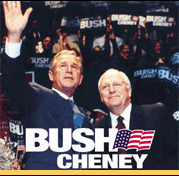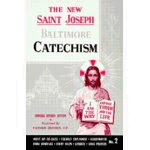
Click here for
Campaign 2000
“When we elect our lawmakers in America, we
influence the moral character of this nation for better or for worse. When our laws permit violence against little
babies, incidents like the Columbine High School shootings are the logical outcome
…”
Rev. Frank Pavone, National Priests
for Life

|

The New Saint Joseph Baltimore Catechism (Official Baltimore Catechism
Series No. 2) Revised Edition
Order
securely online
This Catechism retains the text of the Revised Baltimore Catechism,
Number 2, but adds abundant explanations to help children understand the difficult parts
of each lesson along with pictures to aid in understanding.
Intended for grades 6-8
Official
Baltimore Catechism Series No. 1
is also available
Click Here
| |
|
|
|
by Fr. Frank Pavone; National Director, Priests for Life
For the past year, Priests for Life has conducted a major effort to
prepare believers for the upcoming elections. We have endorsed no
candidates, but simply offer pastoral formation and guidance based on the
teachings of the Church, particularly the documents Living the Gospel of
Life and Faithful Citizenship.
One pastoral question that keeps arising is whether it is morally
permissible to vote for a candidate who has a realistic chance of winning
and is better than his or her opponent, but who is not as good as another
candidate who is running but does not have enough of a base of support to
be elected now. Of course it is.
While some call this voting for "the lesser of two evils," it really
isn't. We may never choose evil, but we may choose good even when evil is
mixed in with it. When we vote for someone in order to improve the current
policies, that improvement is itself a good, even when it isn't perfect.
"But if this is true," some will ask, "how will we ever get to the point
of electing someone whose positions reflect more fully the Church's
teachings?"
The answer is that we will get there when we are able to build enough of a
base of support throughout the nation for such a candidate. But such a
base of support is not built in a vacuum. The current policies of the
nation, the lessons taught by Supreme Court decisions, and the teaching
and example of those in public office go a long way to create a certain
climate which is either favorable or unfavorable to the conversion of
minds and hearts, and to the formation of the young. Conversion is, of
course, the key element in building the support necessary to elect more
favorable candidates. We need to keep our mind on long term goals, without
ignoring the impact which the short-term results have on our ability to
reach those goals.
So let us move forward, recognizing both the opportunity and limitations
of voting. No single election brings about the resolution of our nation's
problems. By the act of voting, we are neither waving a magic wand, nor
are we making statements about what is perfect. What we are doing,
instead, is attempting to place in positions of public trust those whom we
believe can make the best improvement possible at the present time in the
public policy of our nation.
If the result of the elections of 2000 is national leadership that more
closely reflects our values, may we not for a moment fall into the trap of
thinking that the government will do our work for us. We are called to be
ever vigilant in bearing witness to the faith in our personal lives. And
if the elections bring our nation further from our values, may we not for
a moment despair, but rather summon renewed courage and confidence to
proclaim the Word of God, which, in His good time, indeed shall renew the
face of the earth. |
|
|
|
|
|
|
|
|
|
|
|
|
|
|
|
|
|
|
|
|
|
|
|
|
|
This Page last updated: Tuesday, October 31, 2000
2363 people have visited this page
|